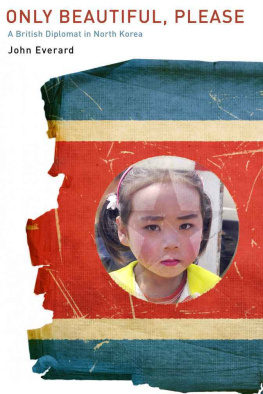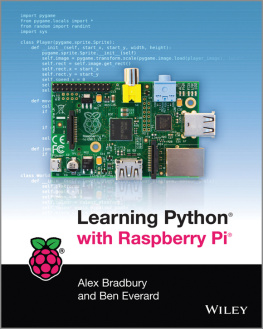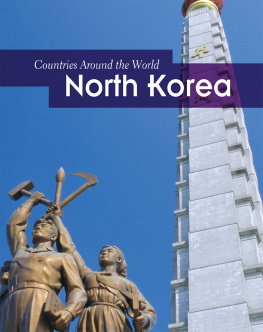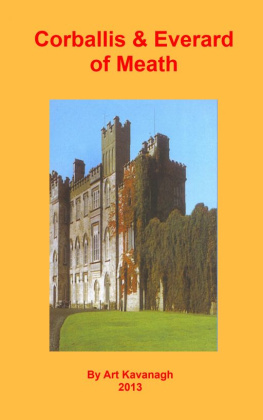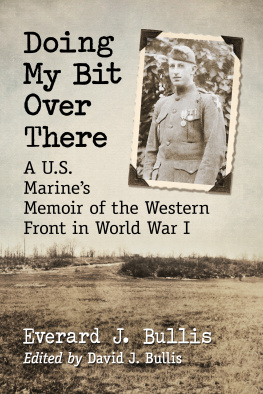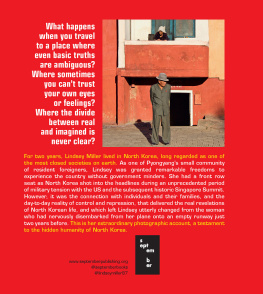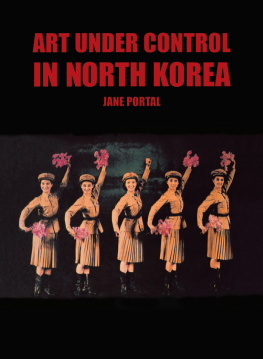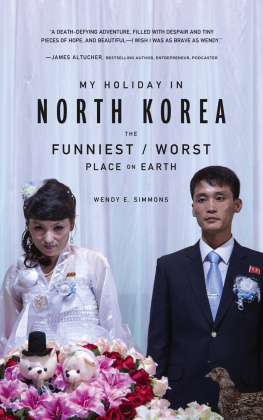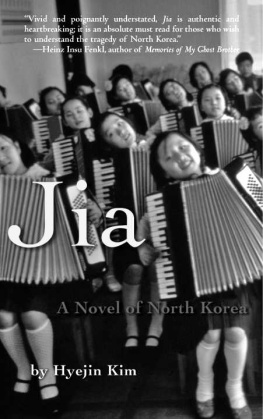John Everard - Only Beautiful, Please: A British Diplomat in North Korea
Here you can read online John Everard - Only Beautiful, Please: A British Diplomat in North Korea full text of the book (entire story) in english for free. Download pdf and epub, get meaning, cover and reviews about this ebook. year: 2012, publisher: Shorenstein Asia-Pacific Research Center, genre: Detective and thriller. Description of the work, (preface) as well as reviews are available. Best literature library LitArk.com created for fans of good reading and offers a wide selection of genres:
Romance novel
Science fiction
Adventure
Detective
Science
History
Home and family
Prose
Art
Politics
Computer
Non-fiction
Religion
Business
Children
Humor
Choose a favorite category and find really read worthwhile books. Enjoy immersion in the world of imagination, feel the emotions of the characters or learn something new for yourself, make an fascinating discovery.
- Book:Only Beautiful, Please: A British Diplomat in North Korea
- Author:
- Publisher:Shorenstein Asia-Pacific Research Center
- Genre:
- Year:2012
- Rating:4 / 5
- Favourites:Add to favourites
- Your mark:
- 80
- 1
- 2
- 3
- 4
- 5
Only Beautiful, Please: A British Diplomat in North Korea: summary, description and annotation
We offer to read an annotation, description, summary or preface (depends on what the author of the book "Only Beautiful, Please: A British Diplomat in North Korea" wrote himself). If you haven't found the necessary information about the book — write in the comments, we will try to find it.
John Everard: author's other books
Who wrote Only Beautiful, Please: A British Diplomat in North Korea? Find out the surname, the name of the author of the book and a list of all author's works by series.
Only Beautiful, Please: A British Diplomat in North Korea — read online for free the complete book (whole text) full work
Below is the text of the book, divided by pages. System saving the place of the last page read, allows you to conveniently read the book "Only Beautiful, Please: A British Diplomat in North Korea" online for free, without having to search again every time where you left off. Put a bookmark, and you can go to the page where you finished reading at any time.
Font size:
Interval:
Bookmark:

The Walter H. Shorenstein Asia-Pacific Research Center is a unique Stanford University institution focused on the interdisciplinary study of contemporary Asia. The Centers mission is to produce and publish outstanding interdisciplinary, Asia-Pacificfocused research; educate students, scholars, and corporate and governmental affiliates; promote constructive interaction to influence U.S. policy toward the Asia-Pacific; and guide Asian nations on key issues of societal transition, development, U.S.-Asia relations, and regional cooperation.
http://aparc.stanford.edu
2012 by The Board of Trustees of the Leland Stanford Junior University. All rights reserved.
Library of Congress Cataloging-in-Publication Data (paperback edition)
Everard, John (John Vivian)
Only beautiful, please : a British diplomat in North Korea / John Everard.
p. cm.
Includes bibliographical references and index.
ISBN 978-1-931368-25-4 (paperback)
ISBN 978-1-931368-31-5 (Kindle version)
1. Korea (North)Description and travel. 2. Korea (North)Social conditions21st century. 3. Korea (North)History. 4. Everard, John (John Vivian)TravelKorea (North) I. Title.
DS932.4.E94 2012
327.4105193092--dc23
2012020975
To the people of North Korea, who deserve better
I ride precariously on the shoulders of giants. Although I have written many parts of this book from my own observations, for other parts I am deeply indebted to the many scholars whose works I have consulted. I have tried to acknowledge this debt in the notes to this book and (less comprehensively) in the bibliography. Any omissions were accidental.
I owe a particular debt of gratitude to my colleagues at the Shorenstein Asia-Pacific Research Center at Stanford University, and especially to David Straub, Dan Sneider, Gi-Wook Shin, and George Krompacky, both for their constructive help and advice during the writing and publishing of this book, and for their friendship and support during my time with them.
I am grateful too to my colleagues and friends, both Korean and foreign, during my time in Pyongyang. I have drawn heavily on their insights and depended heavily on their comradeship and support.
Finally, but not least, I am grateful to my wife Heather for bearing patiently both my long physical absences and mental abstraction while I worked on this book.
I served as British Ambassador to the Democratic Peoples Republic of Korea (DPRK, often called simply North Korea) from February 2006 to July 2008. I therefore had the privilege of living in this extraordinary country and seeing it at first hand for almost two and a half years. After I left Pyongyang, I felt more and more that I wanted to share what I had seen with a wider public in the hope of helping people to understand this little-visited nation. The generosity of the Korean Studies Program of the Shorenstein Asia-Pacific Research Center at Stanford University, which in an unguarded moment awarded me a Pantech visiting fellowship, finally made this possible. Without this invitation to set aside several months of my life actually to write this book, and the bribe of lots of California sunshine while I did so, I doubt that it would ever have seen the light of day.
I have divided this book into four parts.
Broadly, the first part is a description of the DPRK as I found it, with some commentary. It is an account of the DPRK, seen from the inside, as it was after the 1990s famine had shaken its social and political systems but just before both the problematic monetary measures of 2009, the growing international tensions of 2010 (although even as early as 2008 there were plenty of tensions already), and the death of Kim Jong Il in 2011. For the most part I have written about what I saw around me and about the lives of the Koreans whom I knew.
This was the original part of the book, from which the others grew, and it is still the longest. I wrote it mainly because so many people asked me what the DPRK was like. But I wrote it too because North Korea is (slowly) changing, and I wanted to record what I saw and heard around me before it disappears. North Korea is a conservative Asian society that, through an unlikely series of events, has changed far less than the other Asian societies that surround it. It draws attention for many (usually negative) reasons but it is amongst other things a fascinating piece of frozen sociology.
I originally intended to write a book only about DPRK life and society, but because several people asked me too what it was like for me to live in Pyongyang, I decided also to attempt a description of foreigners lives there. This is the theme of the second part of the book. Many people imagine that life in Pyongyang must be unspeakably awful. It is certainly full of problems, but one way or another we all seemed to get by. (Just as fellow Westerners are sometimes concerned for the welfare of diplomatic staff in Pyongyang so Koreans worry about visits to that hotbed of wickedness, the United States. Once, before a business trip to Washington, two of my Korean staff solicitously asked me to be very careful and to make sure that I came back safely. Arent you afraid to go to such a place? they asked.)
The third part is an attempt to explain how the DPRK came to be the almost unique country that it is. Its creation almost by accident, its almost unchanged inheritance of the nineteenth-century political and social traditions of one of the most conservative countries in Asia, and its extreme version of a Stalinist personality cult of the kind that disappeared almost everywhere else once Khrushchev took power, have combined to warp it into something quite bizarre. The regimes behaviour (both domestically and internationally) as well as its understanding of the world in which it finds itself are largely determined by the mould in which it is cast, and I go on from this analysis to discuss the DPRKs interaction (or lack of it) with the outside world and the limits to the regimes understanding of other countries.
The fourth part of the book deals with how the international community should deal with the DPRK. Oceans of ink have been spilled over how best to do this. Many people and governments are concerned over the DPRKs abuses of human rights, its nuclear programme, and its armed provocations of South Korea, and concerned too that it may sell weapons of mass destruction to other regimes. There has been a debate amongst both academics and policymakers for many years, which has continued after Kim Jong Ils death, over whether it is best to confront these issues by isolating the DPRK or by seeking to change its behaviour by engaging it. I have tried to show that neither approach works.
Although I have in the first two parts of this book generally tried not to argue points or to offer interpretations of what I saw and heard (I hope my readers will draw their own conclusions from my descriptions), there is one point which I do want to convey very clearly. Far too often North Korea is seen only as the site of nuclear tests, or of the military parades which are sometimes broadcast on Western media. The personality cult surrounding its leaders has led some commentators to treat it as a joke, while its labour camps lead others to describe North Korea as one huge prison. I am not blind to any of these issuesI have, after all, spent several years wrestling with them. But beyond all these aspects the DPRK is a real country, where real people live, whose lives revolve not around their countrys nuclear policy or any other great international issue but around their families, their colleagues at work, and the thousand daily concerns that make up lives anywhere else in the world. I have tried to show that there is a human aspect to North Korea that I hope policymakers will keep in view as they deliberate over the fate of this country. Before I went to North Korea, I read numerous articles on the country that left me with the impression I was about to enter a world of regimented automatons, all thinking alike and all spouting the same propaganda. North Koreans are not like that at all. They are sharply delineated individuals and for the most part I found them friendly, hospitable, and with a good sense of humour.
Next pageFont size:
Interval:
Bookmark:
Similar books «Only Beautiful, Please: A British Diplomat in North Korea»
Look at similar books to Only Beautiful, Please: A British Diplomat in North Korea. We have selected literature similar in name and meaning in the hope of providing readers with more options to find new, interesting, not yet read works.
Discussion, reviews of the book Only Beautiful, Please: A British Diplomat in North Korea and just readers' own opinions. Leave your comments, write what you think about the work, its meaning or the main characters. Specify what exactly you liked and what you didn't like, and why you think so.

